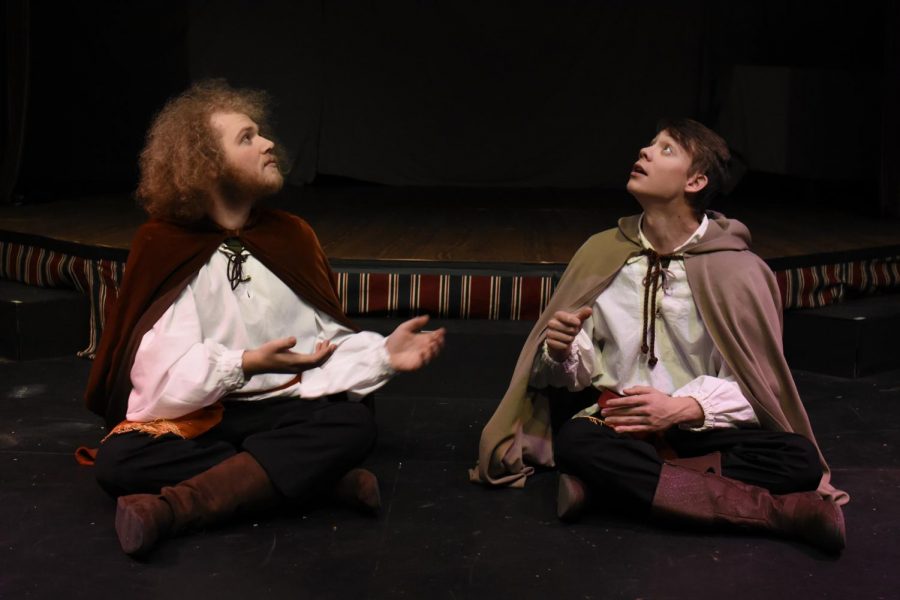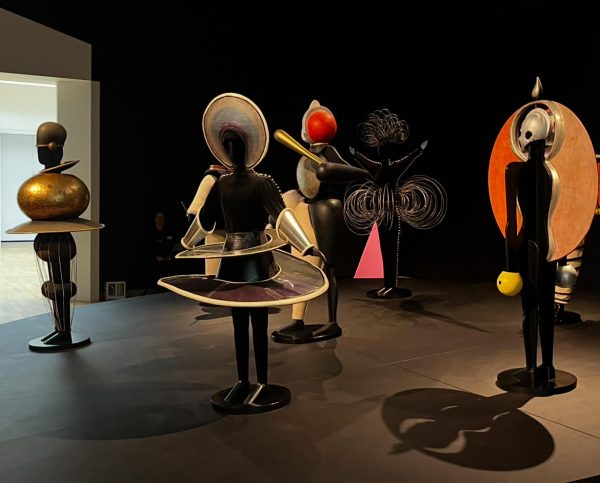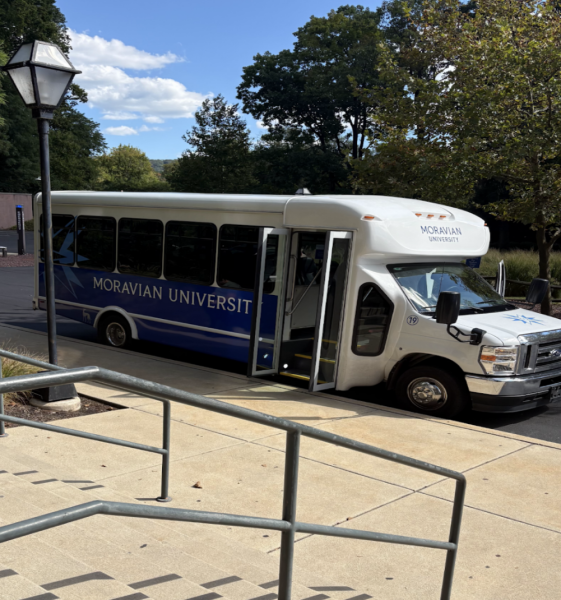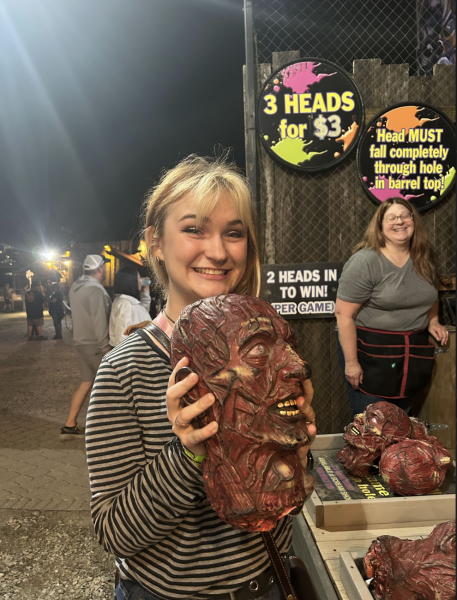From Vision to Reality: Directing a Full Production
Isaac Weston ’22 playing Rosencrantz and Harry Faber ’22 playing Guildenster
When I was thirteen, I read Tom Stoppard’s play “Rosencrantz and Guildenstern Are Dead.” When I was twenty-one, I directed it.
So, how did that happen?
I joined the Moravian College Theatre Company (MCTC) as a freshman with no prior theatre experience, but by the end of my junior year, I had acted, was a crew member, been on the stage management team, and directed a reading of Annie Baker’s “Circle Mirror Transformation.”
A reading is a fairly small commitment, as it consists of five rehearsals and the actors are allowed to have their scripts for the performance. After getting that taste, when students were asked to submit proposals for shows for the 2018-2019 theatre season, my senior year, I knew my time had come. I sent in my request to direct Stoppard’s play.
My proposal was approved, and I started planning that summer. I re-read “R&G” dozens of times, taking notes and marking sections I thought might give me trouble. I wrote analyses of scenes. I looked at costumes and set designs of other productions. I broke down the cast into the smallest possible number I could do the show with. By the time I got back to school, I had a solid foundation.
But then I confronted the reality that directing is an incredibly difficult job.
When it came time to describe my vision to my designers, I floundered. I had no idea. I’d been so in love with the idea of directing this play someday that I figured the vision would just come to me. (Tip for any potential directors out there: your vision will not just come to you!). After what felt like an endless number of meetings and then sitting down with the script to figure out exactly what I wanted my version of this show to be about, I finally began to put the pieces together.
A vision is important, but so is the team that helps you realize it. I was fortunate enough to have the assistance of our theatre director, Christopher Shorr, my hard-working stage manager, Kelsie Lynn, and my dedicated assistant director/assistant stage manager, Corinne Philbin.
With that team behind me, we came to the audition process. I knew I could do the show with ten people, but no fewer than that, and I worried whether or not we would have enough actors. My fears were put to rest when I ended up with a cast of fourteen, all talented and devoted individuals.
MCTC prides itself on being a student-run organization, and any company member can propose a production. Because we’re such a small group, we end up forming close connections with each other. This also means that my cast and crew consisted of people I considered friends. And that’s a delicate balance. I care about these people and wanted to have fun with them, but I knew that we had a job to do. One important lesson that I learned through this process is that having fun and getting the job done are not mutually exclusive. There are plenty of ways to maintain a light atmosphere while doing serious work.
We had our obstacles. Actors fell over barrels, props broke, and we spent countless hours in the theater trying to finish the neverending set. There were times when I left rehearsal feeling like we’d never be ready to open. I wondered if maybe I’d gotten in over my head.
Had I made a mistake by agreeing to take this on?
As we got closer to opening night, though, my cast and crew pushed themselves. My critiques to them after rehearsal grew shorter and shorter. At the end of our final dress rehearsal, I breathed a sigh of relief.
Throughout the process, we’d grown closer. We developed inside jokes and the actors made fun of my predictable warm-ups. Because the show asks so many questions, I thought it would be fun to start every rehearsal with a “question of the day.” These questions ranged from “what was the last movie that made you cry?” to “which two professors would you take with you on a deserted island?” As this continued, my cast and crew wouldn’t let me start rehearsal if I didn’t provide them with one of these inquiries.
Our opening night was delayed due to snow, but when we opened the next night, I’ll never forget the feeling that went through me when my cast took their bows. It was a combination of relief, happiness, and pride. We had done it. We had made it happen.
We ultimately mounted three performances. The joy I felt never seemed to wear off. Working with my actors and crew was one of the most rewarding things I’ve experienced. Truly, I couldn’t have asked for a better team to make my dream come true.
Directing a play is not an easy endeavor, but that’s what makes it worth it. It’s been almost four months since our last performance and I still miss it. Though I was sad to let go of this important chapter in my life, I just remember the words of the Player: “look at every exit as being an entrance somewhere else.”












